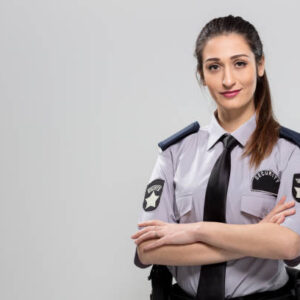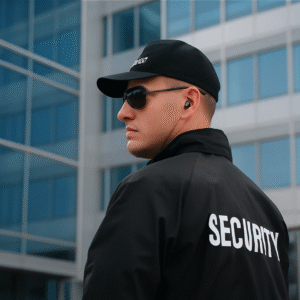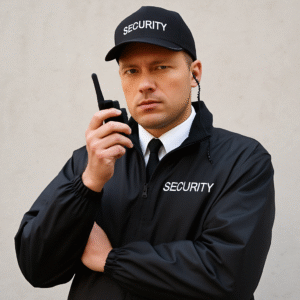Introduction: Why Event Security Matters
When people gather to celebrate, network, or enjoy a performance, safety is the last thing they want to worry about. Yet behind the scenes, careful planning ensures that everyone can focus on the moment without distraction. Event security plays a crucial role in making this possible. It creates a safe space where memories can be made, ideas shared, and milestones celebrated without fear.
Whether it’s a wedding, corporate conference, music festival, or sports match, the quality of security can define how smoothly an event runs. By anticipating risks, maintaining order, and offering reassurance, event security professionals transform potential chaos into peace of mind.
Understanding the Essence of Event Security
At its core, event security is about protecting people, property, and reputation. It goes beyond simply placing guards at entry points. It involves comprehensive strategies that account for every possible scenario, from managing large crowds to responding to unexpected emergencies.
Equally important, event security professionals ensure that safety measures blend seamlessly into the event’s flow. They work quietly in the background, balancing vigilance with discretion. This ensures that attendees feel secure without sensing an oppressive presence.
The Human Side of Security: More Than Just Guards
Event security is not only about preventing risks; it’s about caring for people. Security teams often act as guides, helpers, and problem solvers during events. They may assist lost attendees, handle medical emergencies, or de-escalate tense situations with calm professionalism.
By bringing empathy and communication skills into their work, security professionals show that protection is about more than rules and barriers. It is about creating a welcoming atmosphere where everyone feels safe and respected.
Common Challenges in Event Security
No two events are ever the same, and each brings its own set of challenges. Large-scale festivals must handle crowd surges, while private events may require discreet protection for VIP guests. Weather conditions, last-minute changes, or unexpected behaviors can all add layers of complexity.
Effective event security involves anticipating these challenges before they arise. Through risk assessments and contingency planning, professionals ensure that no detail is overlooked. Preparation makes the difference between reacting under pressure and responding with confidence.
Technology’s Role in Modern Event Security
Today, security solutions extend far beyond manpower. Technology enhances safety through tools such as CCTV surveillance, metal detectors, and access control systems. Drones and advanced communication devices further improve monitoring capabilities, especially at large venues.
However, while technology adds efficiency, it cannot replace human judgment. Security personnel interpret signals, assess emotions, and respond with empathy—qualities machines cannot replicate. Together, people and technology form a strong partnership that takes event security to the next level.
Building Trust with Attendees
Guests are more likely to relax and enjoy themselves when they know safety is a priority. Clear communication, visible yet approachable staff, and well-organized entry checks all help establish trust.
When people feel protected, they engage more freely with the event’s purpose—whether it’s networking, celebration, or entertainment. In this way, event security is not just a background function but a key contributor to the overall experience.
Event Security for Different Types of Gatherings
Every event requires a unique approach to safety. For instance:
-
Corporate Events: Security ensures smooth access control and safeguards sensitive business discussions.
-
Weddings and Private Celebrations: Discreet measures maintain intimacy while keeping unwanted disruptions at bay.
-
Festivals and Concerts: Crowd management and emergency readiness take center stage.
-
Sports Matches: Security ensures fair play by preventing pitch invasions and handling high-energy crowds.
This tailored approach shows how event security adapts to the unique spirit and demands of each gathering.
Collaboration Between Organizers and Security Teams
Successful security doesn’t happen in isolation. Event organizers and security professionals must work hand-in-hand, aligning safety plans with the event’s vision. This collaboration involves sharing schedules, understanding audience profiles, and preparing for contingencies together.
Such teamwork ensures that security measures never feel like obstacles. Instead, they become an invisible safety net that supports the event’s smooth execution.
The Future of Event Security
Looking ahead, event security will continue to evolve. Artificial intelligence, biometric scanning, and predictive analytics are becoming part of the toolkit. Yet, no matter how advanced the systems get, the human element will remain at the heart of protection.
The future promises a balance between cutting-edge technology and compassionate human presence. This blend ensures that safety remains strong while events retain their warmth and inclusivity.
Conclusion: Creating Safe Spaces for Lasting Memories
Every event tells a story, and security ensures that story unfolds without disruption. By blending strategy, empathy, and technology, event security professionals protect what truly matters—people and their experiences.
When security is handled with care, attendees remember the laughter, the speeches, the music, and the connections, not the risks that might have been. Ultimately, effective event security is not just about protection—it’s about enabling joy, unity, and unforgettable moments.






